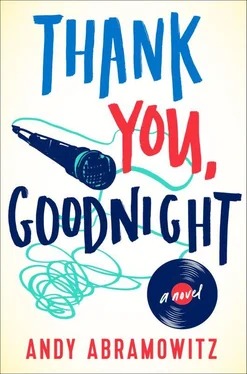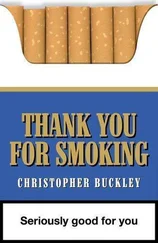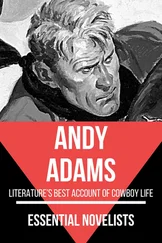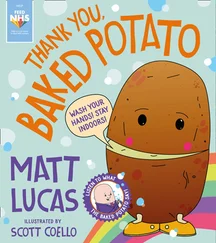“. . . don’t get me started on Axl. He tried to fuck me over and nobody fucks me over. I threw him out of the building—literally threw his ass out. I was like, ‘You are done, man. You are fucking done! And if you ever pull that shit with me again, I will knock your dick in the dirt!’ ”
Warren shifted toward me in whispered sidebar. “ ‘Dick in the dirt’? Isn’t that what the principal says to Judd Nelson in The Breakfast Club ?”
“I don’t think he was the principal,” I corrected. “He was just a teacher.”
“ Just a teacher, huh?”
“. . . and I’ve always told Keith that ‘Sympathy for the Devil’ just doesn’t work on Beggars Banquet . It’s all wrong for that album. He’ll never admit it—you know Keith—but he knows I’m right . . .”
“I can’t listen to this shit anymore,” Warren mumbled, and he bolted up out of his chair to hunt down more flan.
That’s when Sonny Rivers smuggled himself into the party. He tried not to make a fuss about it, and the man dropped into the chair next to me before I could diagnose the chorus of barks, whoops, and hollers that his arrival had wrought. He slapped my knee and said, “I can’t stay.”
That sentence was all it took for the din to die down. It was never Sonny’s intention to silence a room, but you just knew that he could be in twenty other places more happening than this, and damned if he wasn’t here.
A server attempted to take Sonny’s drink order, but he declined.
“I was hoping to tip a glass,” he said to me, every ear at the party tuning in. “Turns out I don’t have time.” He needed to make a flight back to LA that left in an hour. He had two meetings tomorrow, one about his possible involvement in the new Wilco record, the other about a long-delayed project with Mavis Staples that was finally getting off the ground.
Even Alaina, stroking the curved stem of her martini glass, fixed her eyes on the legend in the flesh.
“I’m done with this project,” he declared, leaning over the table in a gravelly broadcast. “Everybody else here gets to live with it, hopefully for a good long while, but there’s nothing left for me to do, so I move on to the next one. That’s the game.”
He started scratching the top of his head. “Let’s talk straight. Nobody in this band writes like Dylan, nobody sings like Otis Redding, and none of you got Jimi Hendrix chops. That’s not this band. You don’t look like Bon Jovi, you don’t move like Jagger, and God help us all if we ever see you in tight pants. In other words, Farber’s got her hands full.”
Chuckling filled the room, and even Alaina issued a catlike grin. I, however, was hoping Sonny might cut it short. No need to emphasize the deluge of marketing complications we posed to the poor folks saddled with the task of selling us.
“That’s why it took some serious balls to do what you did. Serious balls. I know you guys have wet your shorts every step of the way thinking you were going to get laughed at. Laughed at by music fans all over the world. Laughed at by the press. Laughed at by your families, your friends, your neighbors. And laughed at by that old gray-headed motherfucker right there”—his finger found Colin leaning against a mirrored wall—“who still thinks he knows best.” Colin adjusted his tie for show.
“I’ve listened to this record many times,” Sonny intoned. “On airplanes, in my car, my living room. Every kick drum, every guitar lick, every harmony vocal. It’s not a perfect record, but I can tell you with a straight face that you are most definitely not going to get laughed at.” He delivered the palest wink in my direction. “There are people in this room who’ve heard me say this before, but I’m going to say it again: I’ve made many records that nobody loved, but I’ve never made a record that I didn’t love.”
Sonny’s certification was as close to an opiate as I could ask for. My eyes drifted around the table, then around the room, and I experienced something resembling fulfillment.
Sonny gave the table a spirited bang. “I think I know what happens next with this band, but it’s your rodeo now, so it doesn’t matter what I think.”
With that, he stood and issued a clipped, economical nod to his driver, a tall man in a black suit standing stiffly by the door. As Sonny got to his feet, the gathering whirred back to life, chatter flaring up instantaneously as though Sonny had just unpoked the pause button on his stereo.
As I sat there confused, I was darkened by Jumbo’s shadow. He was fingering whipped cream off the top of the pie slice he was holding. “Don’t listen to him, Mingus. You do write like Dylan and this body of mine was made for tight jeans.”
Once breaking free of the herd of industry peeps who’d maneuvered in his path for a handshake, Sonny located me and lifted his chin—code for requesting a word. I negotiated the spasm of tables, chairs, and drunks until I reached him at the entrance.
“Listen, I can’t miss this flight, but we need to talk.”
I recoiled. “What about?”
“Just something with the record. Something you should know.”
“What are you talking about?”
“No time now. We’ll talk later.”
“Sonny,” I began, my mood quickly calcifying. “Life is suspenseful enough.”
He grinned. “Isn’t it though?”
“Two seconds. Two seconds isn’t going to make a difference on the highway this time of night.”
“It’s funny when you panic for no reason,” he said.
“Is it for no reason? Just tell me—good or bad?” Good and bad seemed tidy enough concepts from which to choose.
“Calm yourself. It’s not a bad thing, it’s not a good thing; it’s just a thing.” He signaled through the glass to his driver now in the limo. “Tell you what—I’ll send you an e-mail from the plane. All will be revealed by the time I land.”
“Come on, man. You can’t walk out of here with that. You’re kicking me when I’m down.”
“We’re all down and we’re all being kicked,” he said with a smile. He was looking at me with a blend of patience and tranquility, like a man who could always find peace in the harrowing walls of the tempest. He knew that my life hadn’t yet brought me to that place. Worlds of education lay before me.
“You ever hear of a guy called Sidney Bechet?” he asked. “Jazz musician?”
I sighed through my nose. “Aren’t you tired of always being the guy with the parable?”
“It comes naturally. Now Sidney Bechet was one of the first jazz soloists, played a lot of instruments—sax, clarinet. He was from New Orleans, so he spent some time with Satchmo. The story goes that one time he was giving a student some advice about the tone and voicing of his instrument. Sidney wanted to push this guy, really see what he had. So he says to his student, ‘I’m going to give you one note today. See how many ways you can play that note—growl it, smear it, flat it, sharp it, do anything you want to it. That’s how you express your feelings in this music. It’s like talking.’ ”
I nodded restlessly. “Okay.”
“Are you hearing that?”
“Yeah, one note,” I said, fluttering with impatience.
“Flat it, sharp it, smear it,” he repeated.
“I get it. Sounds like a jazz solo to me.”
“Sounds like life to me,” he said. “One note. Do anything you want with it.”
I stared into the vast sweep of his eyes. “You know you could’ve told me your little secret in the time it took you to tell me this fairy tale.”
“Remember what I said to you when you first brought these new songs to me. Be careful of these cunning plans of yours.”
Suddenly, and for the life of me I couldn’t say why, I was on the verge of tears. “I’ve been as careful as the game allows.”
Читать дальше












